The Web of Life Is Unraveling
Biodiversity is on the decline. That includes the natural ecosystems that directly and indirectly manage the catering for humanity’s dinner table.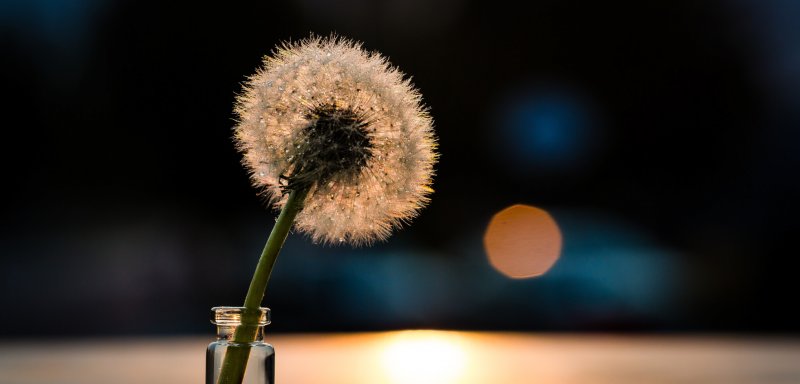 The range of organisms humans depend on is vast. (Denise Johnson / Unsplash)
The range of organisms humans depend on is vast. (Denise Johnson / Unsplash)
The biggest agricultural authority in the world has warned that the web of life is coming apart as the loss of biodiversity increases.
The Food and Agriculture Organisation (FAO) of the United Nations says the wholesale destruction and degradation of natural ecosystems puts human food security at risk, and adds a warning that the same loss could also seriously affect human health and livelihoods.
Although conservationists and biologists have been warning for decades of the increasing threat of mass extinction of species, the FAO study focuses on what its authors call “associated biodiversity for food and agriculture” – that is the networks or ecosystems of living things that underwrite all human food, livestock feed, fuel and fibre, as well as many human medicines.
These ecosystems include all plants, animals and microorganisms – insects, bats, birds, fungi, bacteria, earthworms, mangroves, corals, seagrasses and so on – that create soil fertility, pollinate plants, purify air and water, feed and protect fish, and fight crop and livestock pests and diseases.
Fish in jeopardy
And entirely independently, a team of French scientists has modelled marine biological systems on which humanity’s annual 80 million metric ton haul of fish depends, and warned that climate change could be about to trigger what they call “unprecedented biological shifts” in the world’s oceans.
In a new, 576-page report the FAO concerns itself not just with the remorseless loss everywhere of the natural wilderness and the biological variety fine-tuned by three billion years of evolution, but also with the wild ancestors of crop plants and the myriad breeds, strains and variants selected and bred by generations of farmers and pastoralists during the past 10,000 years of settled agriculture.
There are more than 250,000 flowering plants. Around 6,000 are cultivated for food, but most of the global diet is based on fewer than 200 species, and 66% of all crop production is delivered by just nine crop plants.
All of them are dependent directly and indirectly on associated biodiversity. “Less biodiversity means that plants and animals are more vulnerable to pests and diseases. Compounded by our reliance on fewer and fewer species to feed ourselves, the increasing loss of biodiversity for food and agriculture puts food security and nutrition at risk,” said José Graziano da Silva, director-general of FAO.
Wild food problems
The FAO authors base their study on data from 91 of the 178 countries represented in the organisation. They find that 40 animal species comprise the world’s livestock, but the vast majority of meat, milk and eggs come from just a few species. The global count of breeds of livestock is put at 7,745. Of this huge variety, 26% are at risk of extinction.
Wild foods too – fruits, bulbs, tubers, grains, nuts, kernels, saps and gums, honey and insects and snails – matter hugely to many people in developing countries, but many of these report that 24% of the 4,000 species that provide wild food are in decline.
An estimated 87.5% of all flowering plants are pollinated by animals. Crops pollinated at least partially by animals – bees, but also other insects, birds and bats – account for 35% of all global food but for more than 90% of available vitamin C and more than 70% of available vitamin A.
But the researchers also focus on other services provided by natural ecosystems. Coral reefs, seagrass meadows and kelp forests provide nursery space and food sources for fish, but they also protect coastal communities against floods and storms.
“The increasing loss of biodiversity for food and agriculture puts food security and nutrition at risk”
Wetlands, forests and grassland regulate water flow. Grazing animals reduce the risk of grassland and woodland fire, but overgrazing is a major driver of soil erosion and soil compactions.
The report is a sharp reminder of human dependence on evolution’s generosity, but the warnings about biodiversity loss are hardly new. Researchers have repeatedly warned that the global warming driven by human exploitation of fossil fuels will accelerate the loss of wild things and that once-familiar species are vanishing from many habitats.
Others have already identified the danger of losing the wild ancestors of many crops that could in turn be harmed by climate change, and German scientists warned in 2017 of catastrophic falls in insect populations.
The impact of ever higher carbon dioxide ratios is predicted to harm the kelp forests that provide shelter for many commercial fish species., and warming itself can only impoverish ocean habitats.
Kind of war game
And support for this comes in the journal Nature Climate Change from a team of French researchers with colleagues from other European nations, the US and Japan.
Because monitoring of ocean biological systems is constrained in scale and fragmented in approach, the researchers turned to computer simulation: they designed a large number of pseudo-species of marine creatures, from zooplankton to fish, in 14 eco-regions, all with a range of responses to natural temperature variations, and then conducted a kind of war game of climate change in which local ocean temperature regimes change as the planet warms.
And they warn the world to expect what they call “abrupt community shifts” that could end in long-term change in the global catch, as well as in fish farms and even the ocean’s role in the carbon cycle.
They also point to a recent rise in the number of “climate surprises” that could be attributed to natural ocean warming events such as El Niño, as well as temperature shifts in the Atlantic and Pacific Oceans, and the warming of the Arctic Ocean.
Your support matters…Independent journalism is under threat and overshadowed by heavily funded mainstream media.
You can help level the playing field. Become a member.
Your tax-deductible contribution keeps us digging beneath the headlines to give you thought-provoking, investigative reporting and analysis that unearths what's really happening- without compromise.
Give today to support our courageous, independent journalists.
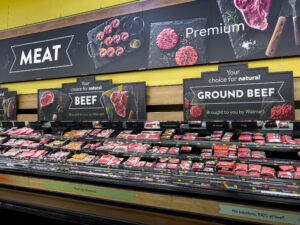
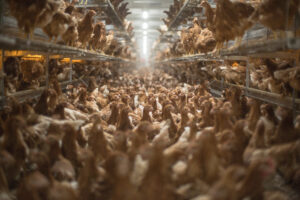
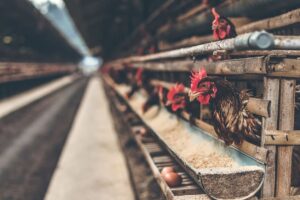

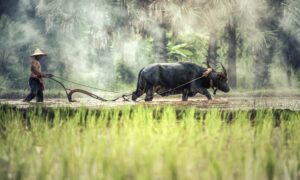

You need to be a supporter to comment.
There are currently no responses to this article.
Be the first to respond.